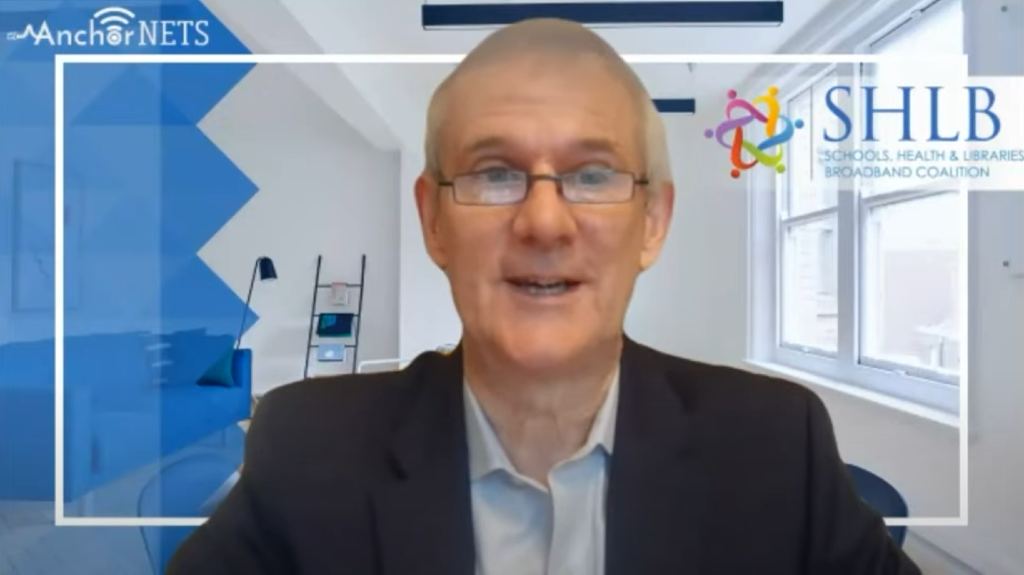Experts Predict BEAD, USF Reforms in 2025
Broadband experts McDowell, Olsen predict BEAD, USF reforms under Trump.
Gabriel Dorner

WASHINGTON, Jan. 23, 2025 – Telecom policy is destined to see some changes in 2025, communications policy experts said Wednesday.
Robert M. McDowell and Caroline Boothe Olsen shared their thoughts on how the new Trump Administration will affect key broadband programs and initiatives in a Schools, Health & Libraries Broadband Coalition webinar.
“I don’t think there will be an attempt by the Trump administration to blow up universal service by any means, maybe [the goal is] to reform it or make it more efficient,” said McDowell, an attorney at the Cooley law firm. He’s also a former Republican FCC commissioner, serving from 2006 to 2013.
Olsen is the Director of Communications and Legislative Affairs at INCOMPAS, a trade association advocating for competition policy in the telecom sphere.
“Connectivity is at the base of everything we do. We cannot operate without it. I think this administration in particular… [will try] to break down barriers to the permitting process [for broadband],” Olsen said.
Hosts John Windhausen, executive director at SHLB, and SHLB Policy Counsel Kristen Corra asked McDowell and Olsen what they expect from Congress, the Trump Administration, and the Supreme Court as President Trump’s second term starts.
McDowell and Olsen agreed from the outset that, with bipartisan support for broadband expansion, it is unlikely that the Trump Administration or Congress will put universal service in jeopardy.
Neither Olsen nor McDowell indicated they believed the new government will attempt to rescind any of the $42.45 billion in BEAD funds already awarded to dozens of states.
Three years into the BEAD program, only three states—Louisiana, Delaware, and Nevada—have been approved by the National Telecommunications and Information Administration to start awarding grants to broadband providers.
Olsen said the current atmosphere was more consistent with a policy of reform than with removal.
“We need to make reforms [to BEAD] to actually ensure those dollars get out the door and that those networks are being built,” she said. “Focus on deployment is what [the Trump Administration] really want[s].”
McDowell and Olsen also discussed whether Congress will take action on the Universal Service Fund within a few months.
The U.S. Court of Appeals for the Fifth Circuit ruled last July that the USF’s funding mechanism was unconstitutional.
The FCC appealed that decision, and the Supreme Court will consider it later in the year. McDowell and Olsen do not expect Congress to pass any legislation on the issue until the court hears the case.
“If the Supreme Court case goes horribly wrong, and they agree with the Fifth Circuit in any way, then Congress will act pretty quickly, but until then, they don’t need to act, and therefore won’t,” McDowell said.









Member discussion